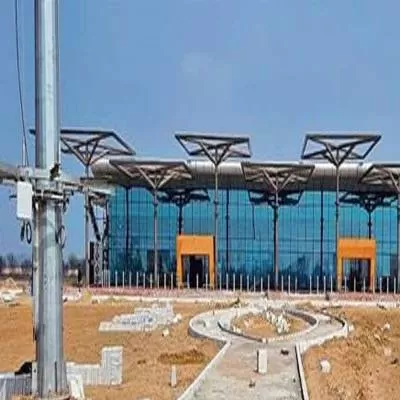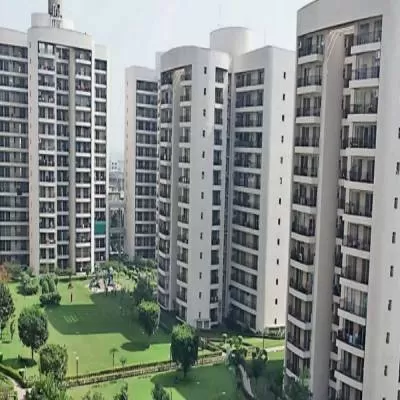- Home
- Real Estate
- See how GST will impact the real estate sector

See how GST will impact the real estate sector
According to Anuj Puri, Chairman and Country Head, JLL India, “There will be a direct impact in terms of tax outflow for developers and consumers. This will depend on whether the final GST rate is more or less than the taxes paid currently. The real estate sector shares positive symbiotic relationships with more than 250 other sectors such as cement, steel, IT, BFSI, etc. Due to this, the benefits or drawbacks of GST on each sector will also have an indirect impact on real estate and vice versa.” Anshul Jain, Managing Director, Cushman & Wakefield- India, adds, “This can lead to lower construction costs for developers across all asset classes, which could likely be passed on to property buyers / occupiers.”
“The real estate industry has been facing issues of multiple taxations amounting to over 25 per cent in indirect taxes,” Brotin Banerjee, MD and CEO, Tata Housing, shares, “With the uniform tax, developers will have free input credits on GST paid for services and goods purchased by them, which will reduce cost and can be passed as reduction to buyers.
It looks at bringing in greater transparency for the sector and may minimise unscrupulous transactions. Also with GST, developers with more margins in their hands will be able to restructure the cost of the products in favour of the consumers.”
While commercial real estate is already starving from funds, it could see some kind of a revival now. Added Parveen Jain, President, National Real Estate Development Council (NAREDCO), said, “Heavy taxes that are being paid currently by the developers will automatically go down by a considerable percentage. Construction costs would also be reduced.”
Anshuman Magazine, Chairman, CBRE – India and South East Asia, says: “Overall, the Bill is expected to have a long lasting and progressive impact on the economy, enhancing the prevalent business sentiment in the country.”
On her part, Neha Hiranandani, Director, House of Hiranandani, shares, “One of the positives that might come from the Bill is removal of restrictions on credit utilisation that will strengthen the credit chain in the system. The Bill treats construction activities as “work contracts” but is silent about guidelines on valuation of land and has kept the sector away from input tax credit.”
“GST will be beneficial for ease of doing business in India. Stamp duty will continue and there is already double taxation on this. The first time stamp duty is paid on land, then the flat buyers pay Stamp duty on the flat without any credit for the land payment. Without addressing the needs of home buyers the government's desire of housing for all will not be met,” says Rohit Gera, Managing Director, Gera Developments and VP, CREDAI – Pune Metro. The magnitude of GST’s impact on the sector would hinge upon the final rate of GST decided by the government and more importantly actual implementation. Hence, in a way, one is still to see the actual benefits for consumers and buyers and the overall positive impact on the economy.
Rajya Sabha passing the Goods and Services Tax (GST) Bill has brought good news for the real estate sector. While one is yet to see if GST will be a game changer for the sector, CW has recorded different reactions from industry experts on the same. According to Anuj Puri, Chairman and Country Head, JLL India, “There will be a direct impact in terms of tax outflow for developers and consumers. This will depend on whether the final GST rate is more or less than the taxes paid currently. The real estate sector shares positive symbiotic relationships with more than 250 other sectors such as cement, steel, IT, BFSI, etc. Due to this, the benefits or drawbacks of GST on each sector will also have an indirect impact on real estate and vice versa.” Anshul Jain, Managing Director, Cushman & Wakefield- India, adds, “This can lead to lower construction costs for developers across all asset classes, which could likely be passed on to property buyers / occupiers.” “The real estate industry has been facing issues of multiple taxations amounting to over 25 per cent in indirect taxes,” Brotin Banerjee, MD and CEO, Tata Housing, shares, “With the uniform tax, developers will have free input credits on GST paid for services and goods purchased by them, which will reduce cost and can be passed as reduction to buyers. It looks at bringing in greater transparency for the sector and may minimise unscrupulous transactions. Also with GST, developers with more margins in their hands will be able to restructure the cost of the products in favour of the consumers.” While commercial real estate is already starving from funds, it could see some kind of a revival now. Added Parveen Jain, President, National Real Estate Development Council (NAREDCO), said, “Heavy taxes that are being paid currently by the developers will automatically go down by a considerable percentage. Construction costs would also be reduced.” Anshuman Magazine, Chairman, CBRE – India and South East Asia, says: “Overall, the Bill is expected to have a long lasting and progressive impact on the economy, enhancing the prevalent business sentiment in the country.” On her part, Neha Hiranandani, Director, House of Hiranandani, shares, “One of the positives that might come from the Bill is removal of restrictions on credit utilisation that will strengthen the credit chain in the system. The Bill treats construction activities as “work contracts” but is silent about guidelines on valuation of land and has kept the sector away from input tax credit.” “GST will be beneficial for ease of doing business in India. Stamp duty will continue and there is already double taxation on this. The first time stamp duty is paid on land, then the flat buyers pay Stamp duty on the flat without any credit for the land payment. Without addressing the needs of home buyers the government's desire of housing for all will not be met,” says Rohit Gera, Managing Director, Gera Developments and VP, CREDAI – Pune Metro. The magnitude of GST’s impact on the sector would hinge upon the final rate of GST decided by the government and more importantly actual implementation. Hence, in a way, one is still to see the actual benefits for consumers and buyers and the overall positive impact on the economy.






















